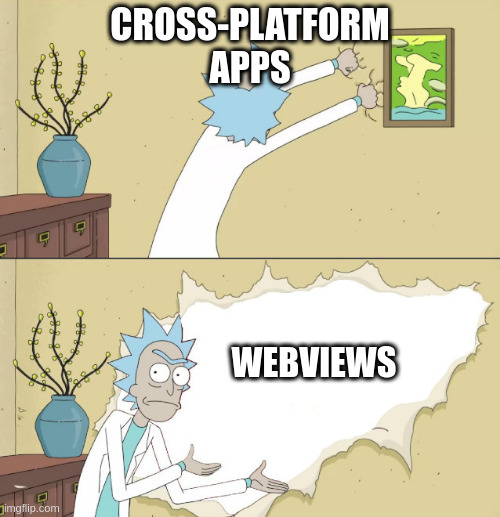this post was submitted on 12 Dec 2023
940 points (98.8% liked)
Programmer Humor
32718 readers
325 users here now
Post funny things about programming here! (Or just rant about your favourite programming language.)
Rules:
- Posts must be relevant to programming, programmers, or computer science.
- No NSFW content.
- Jokes must be in good taste. No hate speech, bigotry, etc.
founded 5 years ago
MODERATORS
you are viewing a single comment's thread
view the rest of the comments
view the rest of the comments

It can do stuff that running in your browser can not. Since electron runs both the client-side code and the server-side nodeJS you can communicate between the rendering engine and the back-end for tasks that a web browser alone wouldn't allow you to do, like accessing and navigating your local file system for example. Or if the app has a lot of assets and it needs to work offline, you can have the nodeJS backend download the files and encrypt them and have the front-end query the nodeJS and to get the decrypted assets and use the whole web app offline completely with a local database that you may sync with a webserver at some point later if or when internet connectivity is restored.
For most apps its overkill, but Electron and NodeJS can do pretty much anything a native app can do (just slower and while using a LOT more resources than a native app) but can be done entirely by someone experienced in web frontend development and nodeJS.